This page recalls the lives of the 6 boys of Samuel & Elizabeth Judd, who emigrated to the Port Phillip Colony from Surrey, England in 1852. To provide a context to this page, their parent’s story should be read first – you’ll find that story here.
Samuel Judd (Jr)
Samuel, the eldest child of Samuel and Elizabeth, was born on 3 December 1837, Hackney, Middlesex, England. He was 15 years old when he disembarked from the ‘Mariner’ at Port Phillip with his parents and 5 younger brothers. At 27 years of age, in 1864, he married Jane Roberts in Victoria. In 1868 Samuel went to Stirling in South Australia to fill a vacancy as ‘resident Christian minister’ created after the incumbent went to America. Stirling is in the Adelaide Hills about 15 kilometres from Adelaide and was an apple growing and market gardening area. Rev. Samuel Judd had been granted a licence to officiate as a minister in 1868. A year later Samuel had moved on to Milang, on the shore of Lake Alexandrina and he reported that:
‘…during the last month three have become obedient to the faith …it will be interesting to our readers to know that one of these is a black ‘native’, educated at Port Lincoln, a very fair scholar and for some time a devout reader of God’s word’.
Samuel identified as an evangelist and was joined in the region by his younger brother William a year or two later. By about the mid 1870s Samuel and his wife had travelled to New Zealand and settled in St. Albans, a suburb of Christchurch on the Avon river. Jane died at St. Albans in 1879 and there appears to be no record of any children from this marriage. About this time Samuel is recorded on NZ electoral rolls working as a gardener; continuing the occupation of his family in Victoria. Within months of the death of Jane, on 12 November 1879, Samuel married Harriet Eliza Crow. Harriet was born in New Zealand but her parents hailed from Essex in England. Their first daughter, Violet Evelyn was born at St. Albans in 1880. Samuel was fined 10 shillings in 1881 for having an unregistered dog ‘in his possession’. Samuel and Harriet’s second daughter, Ada Beatrice was born on 13 January 1882 at ‘Wenona Cottage’, May’s Rd, St. Albans. On 18 August 1889, their first son, Stanley Samuel, was born at St. Albans.
Samuel Judd and his family carried on the religious, temperance and educational presbyterian concerns of his father’s family. In 1893 Samuel was elected president of the Burwood school committee. I wonder what his attitude was to corporal punishment as it was used regularly in schools in this era. The North Canterbury Education Board’s 1894 regulations on the subject stated that both boys and girls could be ‘..thus disciplined’. Neither head nor neck could be touched and canes and sticks were banned in favour of a regulation strap. This was to be at least one and a half inches in breadth and could be no more than 25 inches in length, a quarter of an inch in thickness and four and three quarter ounces in weight.
The Burwood school went on to serve the community for 141 years before being merged recently with another local school. Burwood is a suburb on the Avon river, adjoining St. Albans. The family had moved to 205 Queensbury St, Burwood from St. Albans and in August 1894, Samuel was elected founding president of the Burwood ‘Band of Hope’ committee.
The ‘Band of Hope’ movement was founded in Leeds in 1847 and it aimed to save working class children from the perils of drink by teaching them the importance and principles of sobriety and teetotalism. Band of Hope members signed a pledge to ‘abstain from all intoxicating liquors’. Samuel was re-elected President in 1895 and chaired Burwood ‘Band Of Hope’ meetings of about 80 people which included pianoforte recitals by his wife and daughter Beatrice. On 18 January 1897, Harriet and Samuel’s third child, Gladys Gwendoline Victoria, was born at Burwood. In 1902, Samuel still chaired the Burwood School Committee and a report in that year showed an average attendance at the school of 81 from an enrolled number of 104.
The committee decided to send notices to several parents ‘regarding the continual absences of their children’. A resolution was also passed that no member of the committee should receive payment for work done. Messrs Judd, De la Cour, and Burton informed the committee that they had been giving their time free in improving the school grounds so it was decided to advertise for a caretaker. The committee also determined to purchase and erect a new flagpole and in June 1902, the following ceremony was reported in the newspaper:
HONOURING THE FLAG: CEREMONY AT BURWOOD A pleasant ceremony took place in the school ground of the Burwood School yesterday afternoon, when the flag presented by the School Committee was formally hoisted. Mr Samuel Judd, the Chairman of the Committee, took his seat on a small platform at the foot of the flagpole, with the Rev. G. Manifold and Mr W. W. Tanner, M.H.R., beside him, while behind this party were the members of the Committee and others, and the children were drawn up in line along the sides of the school. After a few words by Mr Judd, the flag was hoisted by three girls of the school, Misses Daisy Davidson, Nellie de la Cour and Gladys Judd. The National Anthem was sung, and three cheers were given for the King. Brief speeches appropriate to the occasion, were made by the Revs. F. R. Inwood and G. Manifold, Mr W. W. Tanner, M.H.R. and Mr George King. The children sang “The Red, White and Blue” and “Soldiers of the King”.
They were then given the Coronation souvenir cards, which, in the case of the other schools, will be distributed on the 26th, bearing the portraits of the King and Queen, with the motto, “Honi soit qui mal y pense” (Shamed be he who thinks evil of it) and an inscription presenting the New Zealand Government’s compliments. Cheers were given for the speakers, the School Committee, the Flagpole Committee, the Chairman, and others, and refreshments, which had been provided by Mr George King, were then served. A social was held in the schoolroom last evening, and was well attended. The flag, which is a New Zealand Ensign, measures 2ft by 6ft. The height of the flagpole from the ground is 65ft 9in, and the gilded weather cock at its top adds another five feet. The flagpole is stated to be the highest of any school in Canterbury (Press, 21 June 1902)
It was often said that the main causes of death in colonial New Zealand were ‘drink, drowning, and drowning while drunk’. By 1905, Samuel represented the Burwood region on the ‘Avon No-License and Vigilance Association’ (Press, 13 May 1905). This association was one of many promoting the ‘No-License’ temperance cause. Temperance was one of the most divisive social issues in late 19th and early 20th century New Zealand and by 1900 the liquor issue was one of the key political struggles of the age with press coverage of licensing polls often eclipsing coverage of the parliamentary elections. In 1893 Premier Richard Seddon had introduced the Alcoholic Liquors Sale Control Bill, which was passed into law soon afterwards. This legislation was a clever compromise, offering a triennial licensing poll in which communities could vote to reduce the number of licenses in their electorate, or close the pubs completely (an option known as ‘no-license’).
But local prohibition would only be introduced if half the voters turned out and three-fifths of them voted to go ‘dry’. The campaigns of the ‘No-License’ New Zealand Alliance and the counter campaigns of civil rights and the Hotel industry were ferociously waged all over the country. In 1909, Samuel and Harriet’s daughter Gladys was female dux of the Burwood School. In 1915, Harriet Judd died, aged 53. Samuel was still resident at 205 Queensbury St, Burwood, Christchurch when he died 12 years later, on 5 November 1927, aged 89.
Robert William Judd
Born 29 August 1839, Hackney, Middlesex, England, Robert was the second son of Samuel and Elizabeth Judd and he was 13 years old when the family arrived in Port Phillip colony from England in 1852. At 24 years of age, on 19 July 1863, Robert William married Martha Rees Gettens. Martha had been born at sea near Cape Town, South Africa onboard the paddle steamer “Shamrock” which was on its maiden voyage from Bristol to Sydney in 1841. Martha’s father, Josiah Gettens, was the Chief Engineer on the ‘Shamrock’. The Shamrock was regarded as the crack steamer of her day; she was the first steamer to sail to, and into, Moreton Bay. Martha and Robert’s first child, Elizabeth (‘Bessie’) was born in Cheltenham, Melbourne in 1864.
Further children, Mary Jane Lee and Samuel George William followed, both born in 1868 in Cheltenham. Samuel lived only 19 days and the cause of his premature death is not known. Rebecca Lucy, their fourth and final child was born in 1870, the same year as Martha’s remaining parent, Mary, died. Mary’s first husband, Josiah Gettens, who had become a publican at an inn in Little Collins St. died in 1848. Mary continued running the pub on her own until her second marriage in 1852 to Stephen Charman of ‘Spring Grove’, Cheltenham. Charman was a Cheltenham pioneer who arrived in Port Phillip from Sussex in 1842. Like Robert’s father, Charman was a Cheltenham market gardener. He provided land for and was instrumental in the establishment of the Methodist Church in Cheltenham. An existing major road in Cheltenham is named after him. In 1873 Robert unsuccessfully stood as a candidate for the Moorabbin School District ‘Board of Advice’, demonstrating that he and his family still lived in Melbourne.
In 1874 however Robert purchased 2 x 320 acre blocks at Bloomfield (now known as Nilma), 3 miles north of Warragul; a small settlement about 100 kilometres east of Melbourne. Robert, Martha and their children made the move from Cheltenham to Bloomfield and eventually developed the farming property which they named “Pheasant Vale”. It is difficult to appreciate the effort that must have been required as the area at the time was covered in dense eucalypt forest and traversed by a few notoriously muddy tracks. In fact the first building in Warragul, James Biram’s shop-cum-post office, was only erected in 1876 following the extension of the railway line from Melbourne to Warragul.
In 1881, Mr. Mason, M.L.A., introduced a deputation consisting of Robert and Mr. Nind to the less than Honourable Commissioner of Railways, Thomas Bent. The object of the deputation being ‘…to urge on Mr. Bent’s attention the several requests which were made to him on the occasion of his recent visit to Gippsland, and especially to ask for immediate action with regard to the Bloomfield siding’. The appropriately named Mr. Bent replied:
‘…as soon as the vote on the motion of want of objective was settled he would have as many of the works asked for proceeded with as soon as possible, and that he would cause the siding at Bloomfield Road to be done immediately after the pending vote was taken’.
Bent was a notoriously colourful and corrupt politician who used his position to extend the railway line from Caulfield to Cheltenham, thus enormously increasing the value of his own property developments. Bent’s corruption was revealed when The Age newspaper published letters he had written as Railways Minister in 1881, offering MPs railways lines in their electorates in exchange for their votes. Of course these transgressions didn’t prohibit Bent later being elected the 22nd Premier of Victoria in 1904 – the first, it has been claimed, with an Australian accent! An article in the local Warragul newspaper just a few years later, in June 1884, provides some details of the progress made on Robert’s farm and his life as a farmer:
OUR FARMS. No. XIII MR. ROBERT W. JUDD’S FARM By Tramp. Pheasant Vale, the property of Mr.R.W. Judd is situate at Bloomfield, contains two full blocks of 320 acres each, and is distant about three and a quarter miles from the Warragul Railway station. Mr. Judd gave his place the name of Pheasant Vale because there were such a large number of birds of that name; and it is rather remarkable that when the surveyors where in the locality before Mr. Judd they also gave it the same name, but this he did not find out till long after. Mr. Judd has been in occupation for about eight years, and during that time he has effected many great improvements. There are about 300 acres laid down under grass, being 120 on one block, and 180 on the other. The balance of the land is still in its virgin state, the timber, however, being let to Mr. Jos. Smith, who has a very extensive sawmill plant on the lower portion of Mr. Judd’s land.
Dairying is the principle industry, and on an average from 25 to 30 cows are milked the year round. Mr. Judd makes butter only, the most of which he sends to Melbourne, but supplies a few local customers also.
The output is about 130lbs in the summer, and about 40 in the winter, and as he has always a certain supply, it has been remarked on that he can be depended upon, when others are not so permanent.
Mr. Judd does not think that cultivation at present price and freight pays well enough, and it is owing to this that he goes in for dairying in preference to cultivation. He has no trouble to dispose of his produce, as he has always more orders than what he can manage to attend to. I may here remark that it is a matter of congratulation that people’s opinion differ, and as we see one goes for cultivation, one for cheese, and another for butter, it clearly shows that the respective branches of industry are well maintained without in any way interfering with the progression of either.
At one time Mr. Judd used to do a little grazing, but as he has now about 90 head of stock on his property he finds that he has no grass to spare. A very fine yearling, by Mr. Grant’s horse, Great Prince, was shown to me, and will eventually make a grand animal. There was also a foal by the same horse but as it was too dark I was unable to see him. Mr. Judd had 1 1/2 acres under cultivation last year, consisting of oats, potatoes, maize and peas, and was fortunate in saving the hay, as it was all in stack except two loads on the Saturday previous to the rain which commenced on Sunday …a day which will be remembered for a very long time by the farmers in this district. Mr. Judd finds maize a very valuable fodder for his milch cows from the beginning of February up to the end of May, and on a small patch of ground he showed me where he had grown sufficient to feed them for that time. The whole of this property is well watered, and the fencing is all of a substantial character.
I was informed that, taking the two blocks together, there is not a similar quantity of ground in the whole district where the soil is of such uniform quality throughout; and I must say that after travelling around both this statement did not appear to me to be an exaggeration. On our way back to the homestead we passed through the pig paddock, where I observed several good sows and a fine boar. Mr. Judd thinks pigs a good line, as he estimates that he makes about £60 a year from three sows. The garden and orchard were then inspected. In the former I was agreeably surprised to see new potatoes, just fit to dig, and a nice crop of oats for green feed. The orchard though small, contains many varieties of good apples, pears, &c., all of which Mr. Judd has grafted himself on Majetin stocks.
At the homestead I was shown a very nice plough, which, by the way, was made to order and delivered in Warragul in two days, the makers being Messrs. McCalman and Garde. A look at the inside of the dairy, which is one of the best I have seen, and built by Mr.Judd himself, concluded my tour of inspection of this comfortable property, and having partaken of a most refreshing cup of tea, which I was sadly in need of, and having been told many anecdotes of an interesting nature which cannot be included in this article, I once more resumed my tramp. (Warragul Guardian and Buln Buln and Narracan Shire Advocate)
Only a month later Robert was summoned to the Warragul Police Court to answer a charge of having an unregistered dog in his possession (this must be a family trait!). Robert stated in evidence that it was usual to pay dog taxes at the same time as rates, but he did not pay for this dog, as it had been killed by the train some months ago, and he “did not expect to have to pay for a dead dog.” Despite his spirited defence their worships inflicted a fine of 5s. with 7s. 6d. costs. It was also in 1884 that Robert and Martha decided to let their farm and start up a ‘Seed & Grain’ store in Victoria St, Warragul. An auction was held on 28 August to sell ‘all his live stock, farming implements, furniture’ which included: 23 Milking cows in full milk and springing to calve, 3×2 yr old heifers, 13 Yearlings’ mixed sexes, 1 Grey mare, thoroughly quiet to ride or drive, 1×2 yr old draught colt, by Great Prince, 1 Yearling draught colt, by Great Prince, 2 Brood sows, 1 Hog, 3 half-fat pigs, Poultry, ducks &c. 3 Iron tanks, spring cart and harness. Also household furniture and sundries. Farming, implements, tools; &c.’ Robert’s father, Samuel, had died the previous year.
As his older brother Samuel Jnr. lived in New Zealand, Robert William, after the death of his mother in 1887 became the ‘elder’ Judd in Australia. In 1885 he advertised his new venture in the newspaper: ‘
R.W. JUDD BEGS to announce to the inhabitants of Warragul and surrounding districts that he has opened the above Business, and he is prepared to supply all kinds of Seeds, Trees and Plants at Melbourne Prices. Mangel Wurzel, Swede Turnip, Seed Potatoes, Chaff, Bran, Oats, Maize, Pollard, Onions, Potatoes, Vegetables and Fruit. R.W.J. solicits your patronage, and hopes, by careful attention, to give every satisfaction. Note the Address – Queen Street, Warragul, Near Athenaeum’.
In 1886, 10 years after the railway line had been extended to Warragul, a public meeting at Bloomfield elected Robert to be part of a deputation who were:
‘…requested to wait upon the Railway Commissioners and ask them to provide necessary accommodation at Bloomfield Siding. The extra accommodation to be asked for consists of additions to the two platforms, ladies’ waiting-room, roof over passenger platform, goods-shed, stationmaster’s accommodation, and the erection of the crane which now lies at the siding. The deputation was also requested to interview the Postmaster-General, and ask for the establishment of a post-office at the station’.
Robert and Martha’s eldest daughter married tailor Albert Harris in 1886. In 1888 Robert advertised the sale of his farm and land:
‘FOR SALE. TWO seventy-five acre BLOCKS, partially improved, and within a mile and a half of Bloomfield station; also well improved Farm of 170 Acres, good area of land under cultivation, and close to station’.
It was not sold and Robert continued to let the property and a year later he opened another shop in the main street of Warragul:
‘Mr. R. W. Judd announces that he has commenced business in the premises occupied by Mr. Rowse, Victoria street, Warragul. as a farm and general produce dealer. Mr. Judd has been long and favourably known in the district and should therefore meet with a fair share of success, more especially as he is prepared to supply dairy produce and vegetables from the farm at Bloomfield. In conjunction with the above business a labor office will be established at which farm and other laborers may find means for obtaining employment in the district, and as an office of this description has been one of the wants of the district it should receive the support of those for whose benefit it has been opened’.
In 1889 Robert engaged in a war of words in relation to the building of roads with Councillor Percy Smith, via letters to the Editor in the ‘Warragul Guardian’:
‘…if Councillor Smith would remove those peculiar coloured glasses of self interest he would be able to see much clearer’, ‘…never claimed the £150 to be spent on road south of railway, but simply asked the council to improve the present roads and not to waste the money on a road that is quite unnecessary’, ‘…I challenge Councillor Smith to produce the petition with 50 signatures who require said road opened’, ‘…One word to the Councillors, in conclusion, if they persist in squandering public money in opening a road that is quite unnecessary at the present time, when other roads more important need repairing’, ‘…Let Councillors show their fitness to spend public money for the good of the public, and then they will get the approval and support of their fellow ratepayers’.
He also tangled with Councillor Smith in 1890 in another way, as reported below in the local paper:
‘A bolt of a somewhat sensational nature took place on Friday last in Warragul. Mr. Judd had brought some pigs in for Messrs. Hamilton and Co’s. monthly sale, and on arriving at the yards loosened the harness to tilt the cart, when, from some cause or another, the horse, a heavy draught, cleared away down the back lane at full gallop, all the harness and chains about him as he galloped along flapping and jangling, there by increasing his fright, and making him speed along all the quicker. Coming round the right-of-way by the Club Hotel he startled Cr. P. J. Smith’s horse, who was hooked up in front of the hostelry, broke its rein and joined the first runaway. Some boys and men with waving arms attempted to stop the animals at the corner of Queen and Smith streets, but while the hack dashed away up the latter, the cart horse swerved suddenly and ran into Mr. Dimond’s store in Victoria street, where he was secured. Nor was this the whole of the mishap; as on Mr. Parkinson jumping on his horse to pursue the runaways, the animal took example from the escapees, and his rider could not pull him up until he had nearly run down to the stationmaster’s residence in Queen street. He then turned him round, and eventually caught Cr. Smith’s horse at the top of the school hill. Happily no children, and but few people were about at the time, or the stampede might have resulted in more serious results than a broken bridle and harness’.
Bushfires raged through numerous areas of the colony in February 1891 including one which ‘…commenced very close to Warragul on the No. 1 road, running right across the properties of Messrs. P. Smith. T. Smith, Judd, J. Smith, and Ahearn. Some of the homesteads were in great danger. On Friday night some of the trees were still burning, but all danger was over’.
1891 marked a new beginning for the shop in Victoria St:
‘R.W. JUDD HAVING purchased the premises of Mr. Rowse, Painter and Decorator, has resolved to re-commence in his old line of Farm and Garden Produce, and hopes by strict attention to business, to merit a share of’ public patronage. R. W. Judd has for sale all kinds of Farm and Garden Seeds, together with Chaff, Oats, Maize, Peas, Barley; Wheat, Bran, Pollard &c., at lowest possible rates. Fresh Supply of Vegetables (thrice weekly) from our own farm Bloomfield: also, A Supply of our own Butter, Eggs, Milk, &c. Orders for Vegetables and Dairy Produce promptly attended to. At the request of several farmers R.W. JUDD has resolved to establish a labor office, where all kinds of Farm and Mechanical Laborers may find employment. Farmers and others requiring labor will please call NEXT RICKARDS’ FURNITURE WAREHOUSE, Victoria-St. Warragul.
This advertisement was quickly followed by another for a clearing sale of farm equipment in May: ‘
Wm. HAMILTON & CO. are instructed by R. W. Judd, Esq., who has leased his farm, to sell by public auction, on the ground, about 1 mile north of Bloomfield, on above date, at 12 sharp. The whole of the Stock, Farming Implements, Furniture, &c., consisting of 7 Cows in milk and springing, 3 prime Vealers, 6 head cattle from poddies to 3yr. olds, 5 draught Mares and Fillies, from l yr. old upwards, Plough, Chaff cutter (3 knives), Dray, Buggy, Suite of Furniture, Bedroom Furniture, Stack of Hay (about 4tons.) Luncheon Provided. Terms £25 or over, 3 months, £50 or over 4 months’ approved bill without interest’.
In 1892 Robert was an unsuccessful candidate in the Municipal elections in the seat of Central Riding on the retirement of Councillor Parkes. In 1893 his 2 shops were officially valued at £85 and £15 respectively for Lot 18 and Lot 14. Robert and Martha’s second daughter Mary Jane married James Peters. The Shire Health Inspector interviewed Robert in April 1895 in relation to his:
‘application to be allowed to keep bone dust and superphosphate of ammonia in limited quantities for sale on his premises’. The Inspector noted that ‘the odours arising from these manures, although very disagreeable to the senses, are not dangerous to health, as they do not contain any infectious matter. I may here remark that Mr. Judd informed me that he would be able to abate the nuisance caused by the bad smell to a great extent by the use of deodorants’.
A month later he was inundated with farmers trying to apply for the ‘Flax Bonus’. The Guardian had notified that ‘the forms could be obtained of Mr. Judd’, then, when no forms remained, the Guardian reported that Robert ‘serenely replied, with his marvellous supply of language and felicity of expression;
…And quite true too, they could have been obtained until a few minutes ago, but they are now all gone and I must ask you to take the trouble to call again’.
Robert was involved with The Australian Natives Association (ANA) whose membership was made up of men (of European descent) born in the Australian colonies and was a major force in the movement for Federation. This is somewhat odd – I presume Robert didn’t let on that he himself was a ‘Pom’, born in England and 13 years old when he arrived in Port Phillip! In September 1895, the local ANA ‘elected’ Robert to the Opposition benches of a mock ‘Warragul Parliament’. The Public Hall was ‘arranged in strictly Parliamentary order, and about sixty members put in an appearance’. Three hundred people turned out to enjoy the evening. The ‘Governor’s’ speech opening the ‘parliament’ humorously referred to several local issues like the ‘insanitary condition of the drain’ in Queen St. and the ‘erratic movements of the Post office clock’. The ‘Governor’ then announced that…
‘A measure will be at once placed before you proposing to extend the franchise to women, and thus give state recognition to the principle of the political equality of the sexes’ and ‘I earnestly hope that your deliberations may advance the prosperity of the Warragul district, and conduce to the material well being of its impecunious people’.
The ‘parliamentary debate’ which followed is a fascinating insight into male attitudes of the era in relation to the enfranchisement and roles of women and may be read in full HERE.
In the late 1890’s the motto ‘IN HOC SIGNO VINCES’ and it’s interpretation ‘By This Sign I Conquer’ began appearing in all of Robert Judd’s store advertisements.The motto has appeared on the grand standard of the Knights Templar with the words inscribed over “a blood-red Passion Cross”.
The motto and symbol are also commonly used by the Masonic Order. Robert had been raised in a strongly religious Presbyterian family, his wife Martha was the step-daughter of one of the founders of the Methodist Church in Cheltenham and I presume his own family was also deeply religious. I am therefore surprised not to have discovered evidence of this family’s participation in local Church life or temperance movement etc. In 1900 Robert was elected founding President of the Horticultural Society for Warragul.
After his wife Martha died in 1922, Robert returned to live in Melbourne as his address is recorded in the Electoral Roll of 1924 as 26 Warburton Rd, Canterbury, Victoria. Robert William Judd died 11 November 1930, in Melbourne.
James Judd
Samuel and Elizabeth’s third son, James was born 13 September 1841, in Hackney, Middlesex, England and died 6 September 1842. James lived for less than one year and died 10 years before his parents sailed for Port Phillip Bay. Another son, born 5 years later was also named James.
William Judd
William was born 27 March 1843, in Hackney, Middlesex and was 9 years old when he arrived in Port Phillip on the ‘Mariner’ from England. William developed a higher calling than the Cheltenham market gardening activities of others in his family. In July 1869, as a single man 26 years of age, he travelled on the steamer ‘Claud Hamilton’ to South Australia to join his brother Samuel who had already taken up a position about a year before as an evangelist christian minister in South Australia at Stirling East. William and his brother identified themselves as Disciples of Christ, a Church of Christ protestant reform movement which prided themselves in being ‘a peculiar people’. They promoted the restoration of New Testament Christianity and Christian unity through rejection of divisive ‘man-made’ creeds and denominational traditions, and a return to the beliefs and practices of the early church including immersive baptism and unordained evangelists.
South Australian evangelist pioneers included several families of Lawries who established a congregation at McLaren Vale and who William worked with and knew well. William is recorded as being involved with the ‘church’ at Strathalbyn which held meetings in the large store of Mr. Colman in 1870. At one such meeting in July, attended by William, it was reported that:
‘…The church has been formed eight months; during that time 35 persons had been admitted into fellowship by faith and baptism. Three members had been dismissed by letter to sister Churches, and there was a total membership at this date of 49’. One speaker ‘…rose amidst acclamation, and in the course of his remarks dwelt upon the subject “Love.” He was happy to see so many happy faces before him. He believed there was a large field of labor in this locality, and that every person present was pleased at efforts put forth for the extension of the kingdom of Christ. A Church lacking the elements of love could never prosper. Just as soon as the preacher ceased to preach the truth, just so soon would the Church cease to grow in grace’. Then ‘Mr. William Judd, in the course of some very humorous remarks, during which he was frequently applauded, dwelt mainly upon the subject “Perseverance” and after speaking for some time, concluded by quoting a very apt and pointed piece of poetry’. ‘Mr. Samuel Judd who was to have been present, had met with an accident, and was thus unable to attend’.
In January the next year, William attended the annual festival and picnic in connection with the Strathalbyn Band of Hope and Temperance Society. At 9 o’clock the members of the Band:
‘…assembled at the Primitive Methodist schoolroom and walked in procession to Mr. A. Stark’s paddock, kindly lent for the occasion, headed by the fife and drum band, where a variety of amusements were provided’. About 700 people attended. ‘Cricket seemed to be the favourite sport of the day amongst the young gentlemen, and croquet amongst the ladies. At 4 o’clock the procession left the paddock, and marched to the Primitive Chapel, where an excellent tea was provided for the members of the Band. The Band of Hope numbered in all about 350, and the fragments that were taken up from 114 lbs. of cake and the quantity of bread were very small indeed’. ‘…we learn that four branch bands of hope have been established during the year, the formation of which is mainly attributed to the energy of the president (Rev. J. G. Wright). The Milang branch, which was established in July, 1870, Mr. Judd being elected president and Mr. Pomeroy secretary; commencing with 63 members they now number 90’. ‘…Messrs. Cobb & Co, very kindly ran a conveyance between Strathalbyn and the picnic ground for the convenience of visitors’. ‘Several excellent recitations were delivered during the evening and Mr. Judd gave an interesting address on the temperance question. The total proceeds of tea and collection were £8 16s’.
The proceedings were brought to a close by singing the doxology and pronouncing the benediction.
The Doxology:
Praise God, from whom all blessings flow
Praise him, all creatures here below
Praise him above, ye heavenly host
Praise Father, Son, and Holy Ghost
Amen
William was also involved in the Adelphian Society, a christian orientated literary group which encouraged young men to ‘persevere in acquiring that knowledge which would make them useful in their various spheres of life’ and which later supported debate in ‘mock’ parliaments which provided essential training for aspiring politicians and became a force for Federation of the colonies’. [Note: So similar to his older brother Robert’s activity in the Australian Natives Association in Warragul, Victoria]
…The young men of the Adelphian Society, in connection with the Church of Christ in this city, held their usual quarterly public meeting in the Chapel, Grote street, on Friday evening last. Mr. P. Santo occupied the chair. The meeting was opened by singing and prayer. The following exercises were then proceeded with:— Recitations by F. Hales and W. Judd, on ‘The Power of Evil Habit’.
On 10 April 1872 William married Esther Evans at the residence of Mrs Sarah Williams which was the ‘Fontonville’ Seminary at McLaren Vale. Esther was an assistant to Mrs Williams at the seminary. Esther’s parents had emigrated from Devonshire, England in 1842, settling at Myponga. In September, 5 months later, William’s licence to perform marriages was announced in the South Australian Government Gazette:
‘MARRIAGE ACT. The Rev. Joseph Graham (Primitive Methodist), Kadina, and the Rev. William Judd (Church of Christ), Willunga, have been enrolled as officiating ministers’.
On 27 February 1873 their first child, Clarence Samuel, was born at Willunga. Next year, on 19 May, their first daughter, Millicent Esther was born at Fontonville Seminary, McLaren Vale. Later, in 1874, Esther’s application to the Board Of Education for a licence included the information that she had assisted Sarah Williams for many years at Fontonville Seminary.
Mrs Williams was retiring due to ill health and so Esther began a career as a licensed teacher. In March 1875 a ‘Preliminary Cooperation Meeting’ of the Churches of Christ in South Australia was held. The following churches were represented: Adelaide, Alma, Dalkey, Hindmarsh, Mallala, Milang, Mount Gambier, Norwood, Port Adelaide, Stirling East, Strathalbyn and Two Wells. The Willunga representative (Samuel Judd) was not able to be present due to illness. The main reason for this conference was to work out an acceptable method to the churches on how to evangelise the Colony. It was proposed:
“That it is desirable to place one or more additional evangelists in the field to assist such country churches as need assistance, and to open up new fields of labour by the proclamation of the Gospel”.
In October 1875 William and Esther’s third child, Cecil William was born at Fontonville. The Judd youngsters would have almost certainly attended the Bassett family’s ‘Buckland House Academy’ as the local school at Alma was known, or their Boys School which was built later, adjacent to the ‘Academy’. James and Mary Bassett dedicated their lives to educating the children of Willunga.
By 1880 William and Esther were based in a little town called Alma which is about 100 kilometres due north of Adelaide and involved in the life of both Alma and nearby Mallala.
‘Religious services are held in Mr. McDonald’s large room at the accommodation house every Sunday by the Christian Disciples. Mr. Woolcock of Mallala and Mr. Judd of Alma, officiating alternately. A Sunday school is also held in the same place, Mr. Andrew Barr being president. There are upwards of fifty scholars on the roll’. In October Mallala Sunday School ‘celebrated their anniversary on Sunday and Tuesday last. The services on Sunday were conducted by Mr. M. Slee, of Adelaide. The scholars partook of their usual tea on Tuesday. In the evening a public meeting was held, Mr. D.Wilson of Barrabba, in the chair. Very excellent practical addresses were given by the chairman and Messrs. Judd, Lawrie, Burt, Slee, and Woolcook, recitations being given at intervals by the scholars. These services were a decided success’.
In the same month, at Alma it was reported that the:
‘…anniversary tea meeting of the Christian Church of this place was held on the 13th inst. and was very successful, there being about 400 persons present. Excellent addresses bearing on church work were delivered by the pastor Mr. W. Judd‘.
In March 1881 William and Esther’s fourth child, a daughter named Letitia Adela, was born at Alma and William performed a ceremony to open the new Alma Cricket Ground.
‘Mr. Judd, who in a few and appropriate words declared the oval opened and giving some very good counsel to the members of the club to keep it free from gambling and swearing, and to act harmoniously together to make the oval a place of pure amusement and pleasure and free from discord. After which Mr. Good and himself had an innings each, when a match was played between the Alma Cricket Club first eleven and a combined 22 of Grace Plains and West Dalkey Cricket Clubs, the 22 being the first to defend the sticks from which they were disposed of for 31 runs.
The Almas then took the willow in hand and soon ran up a score of 105 for 5 wickets, when stumps were drawn at 3 o’clock to allow other sports to be entered into’.
[Note: A combined 22? And they only made 31 runs between the lot of them!!?]
There were other sports indulged in, including a one hour’s go-as-you-please which was won by Mr. S. Eyre; distance, 7 1/2 miles; prize, clock value 30s.; second prize, an electroplated cornerstand; Mr. John Good; 7 miles 14 chains. Dinner and tea were provided by Mrs. Good, Toseland and Lawrie who worked hard to supply the wants of the inner man. In the evening an entertainment was held in the Alma Town Hall, the place, being crowded and many were unable to get in. Mr. Judd presided and gave a few happy remarks and rhymes on cricket, after which he called on Miss Doyle for an overture’.
In 1882 William was still the ‘resident pastor’ at Alma. 2 days after Xmas Esther gave birth to their fifth child, a son they named Osmund Leander. William’s father, the Cheltenham pioneer Samuel Judd Snr., died in Cheltenham on 16 September 1883. William returned to Melbourne on the steamer ‘South Australia’ in December 1883, probably to spend Xmas with his bereaved mother. Esther tendered her resignation as Head Teacher at Alma South school to the Minister For Education in 1884 and in August of that year gave birth to their sixth child; daughter Ida Victoria. William continued to address each annual ‘Christian Disciples’ meeting at Alma and then moved further south in 1887, taking up a position in April as resident pastor at Mallala, a small town about 60 kilometres due north of Adelaide. The day after it was announced that Mallala had ‘secured’ William as their pastor, Esther gave birth at ‘the Manse’ to their seventh child, Orlando Rupert.
A month later William attended the anniversary of the Mallala Primitive Methodist Church and welcomed the newly elected ‘pastor of the Mallala Circuit’. Did this mean that William had been replaced and lost his job in Mallala? There are few further records of William in South Australia later than the notice of him officiating at the funeral of local notable Mr. John Worden, sen. This funeral was
‘…the largest ever witnessed in our district, there being no less than fifty-six vehicles in the procession’.
William officiated at several weddings at Alma during 1888-1889 and then, in April 1889, a notice appeared in the Government Gazette indicating that his licence under the Marriage Act had been cancelled. It is not known why William lost this licence but he and Esther then moved back to Victoria and are recorded on the Electoral Rolls of 1903 and 1909 as living at 13 Swanston St, Mentone.
This address was part of William’s father’s property in the ‘Beaumaris Estate’, purchased by Samuel Snr. back in 1853. William and Esther named this property ‘Fontonville’ after the seminary in McLaren Vale. The 1903-1909 Electoral Rolls both record William’s occupation as a dairyman. William and Esther lived at ‘Fontonville’ in Swanston Street, Mentone for the rest of their lives. William died, aged 90, in April 1933 and Esther died 3 years later, aged 89, in July 1936. Both are interred at the old Cheltenham Cemetery and their headstone reads:
“Sacred to the Memory of W. JUDD Who passed away 3rd April 1933 Aged 90 Yrs. Gone to be with Christ which is far better. Also ESTHER Dear wife of above Called home on 25th July 1936 Age 89 Sleep on Beloved”
William and Esther Judd with family in Cheltenham, c1930
Back Row (L to R): Osmund , ?Glenda, — , — , — , Merle, Clarence , William Rudolph, Marion, Ted Elliot, — , Maisie Chandler, — , — , Eric Whitehead
Centre Row: Mary Howard, — , — , Margaret Paulden, William, Esther, Millicent, Inez, Letitia, — , Clarice
Front Row: — , — , — , — , — , — , — , — , — , —, — ,
Richard Langridge Judd
My maternal great, great, grandfather Richard Langridge Judd was born 26 May 1845, at Hackney, Middlesex, England and was 8 years old when he arrived in Port Phillip with his parents and brothers.
I have yet to find much information about his life, but my research continues!
On 4 November 1869 Richard married Margaret Anne BROUGH (b. 29 Mar 1849, Lymm, Cheshire, England, d. 6 Jun 1925, Elman Rd, Cheltenham, Melbourne, Victoria).
Their children:
- John Charles, b. 2 Oct 1870, Beaumaris, Victoria, Australia d. 12 Apr 1954, Garfield, Victoria
- Arthur Richard, b. 17 Apr 1872, Cheltenham, Melbourne, Australia, d. 05 Aug 1966, Cheltenham, Melbourne (my paternal great grandfather)
- Frederick Morton, b. 29 Oct 1873, Cheltenham, Melbourne, Australia, d. 15 Apr 1962, Cheltenham, Melbourne
- William Robert, b. 11 Aug 1878, Cheltenham, Melbourne, England, d. 25 Apr 1966, Cheltenham, Melbourne
- Sarah Ellen, b. 28 Jul 1882, Beaumaris, Victoria, Australia, d. 20 Jun 1965, Murchison, Victoria
- Bertha Margaret Ann, b. 12 Jul 1884, Cheltenham, Melbourne, Australia, d. 19 Aug 1974, Cheltenham, Melbourne
- Harold Edgar, b. 25 Jul 1886, Beaumaris, Victoria, Australia, d. 18 Sep 1957, Hastings, Victoria
- Walter Stanley, b. 21 Mar 1889, Cheltenham, Melbourne, Australia, d. 23 Nov 1944, Pearcedale, Victoria
- Minnie Octavia, b. 17 Dec 1896, Moorabbin, Victoria, Australia, d. 19 Sep 1967, Cheltenham, Melbourne
Richard lived at Latrobe St Cheltenham and was a market gardener. He was a religious man and heavily involved in most of the organisations and groups striving for social improvements to the district. He was employed as the area’s electoral registrar for 30 years and unsuccessfully ran for the south riding of the Moorabbin Shire in 1889.
He died in Cheltenham on 23 April 1910 and “was possessed of property valued at £2160, which he bequeathed to his widow”.
His wife Margaret survived him by 15 years and they are interred together in Cheltenham cemetery along with their daughter Bertha and her husband James Town.
James Judd
b. 25 Jan 1847, Hackney, Middlesex, England, d. 1929, Prahran, Victoria. James was 6 years old when he arrived in Port Phillip from England
David Judd
b. 1 Mar 1850, Hackney, Middlesex, England, d. 21 Jan 1909, Oakleigh, Victoria David was 2 years old when he arrived in Port Phillip from England

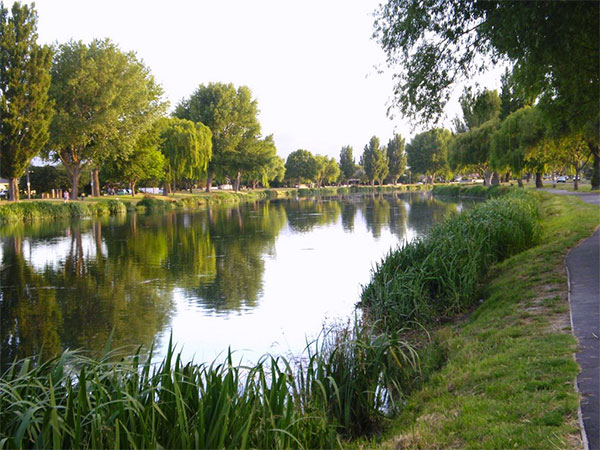
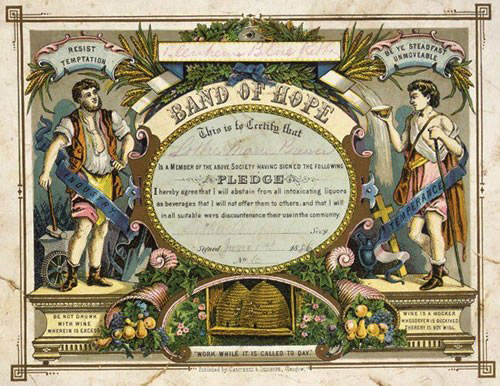
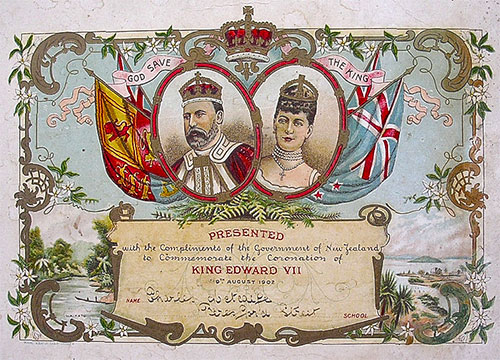
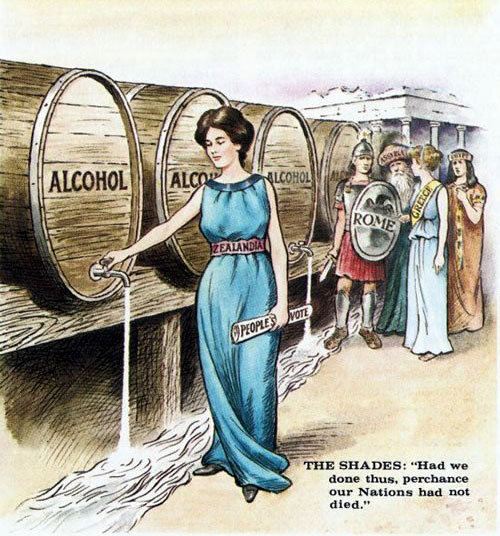
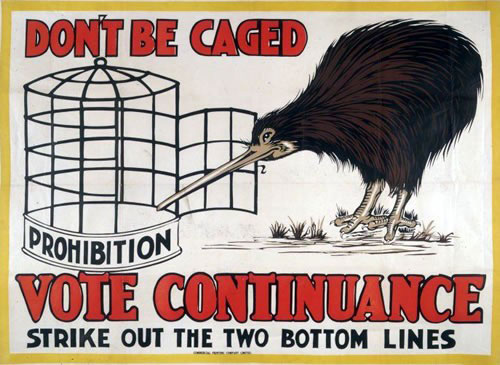
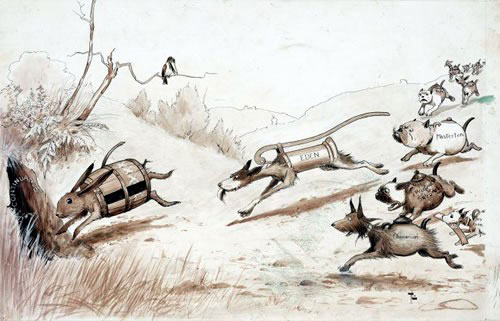
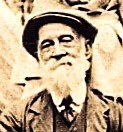
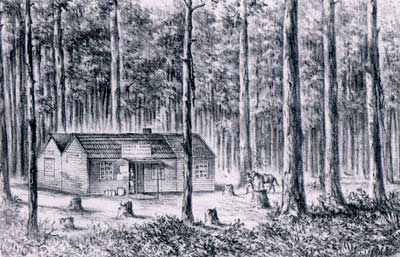
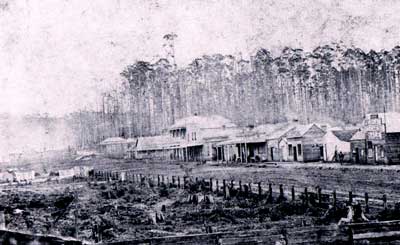
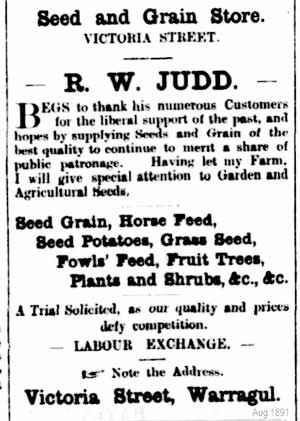
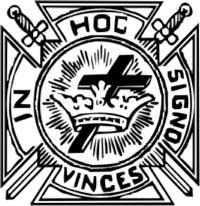
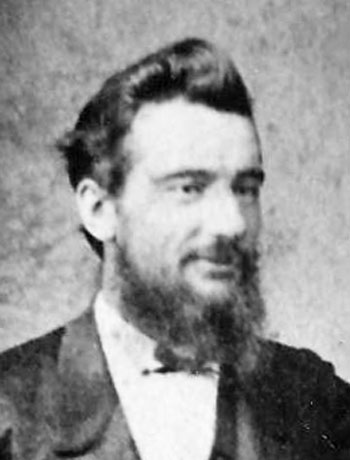
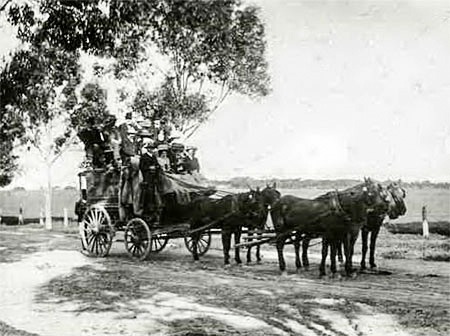
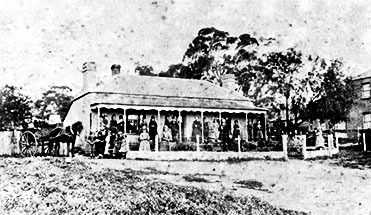


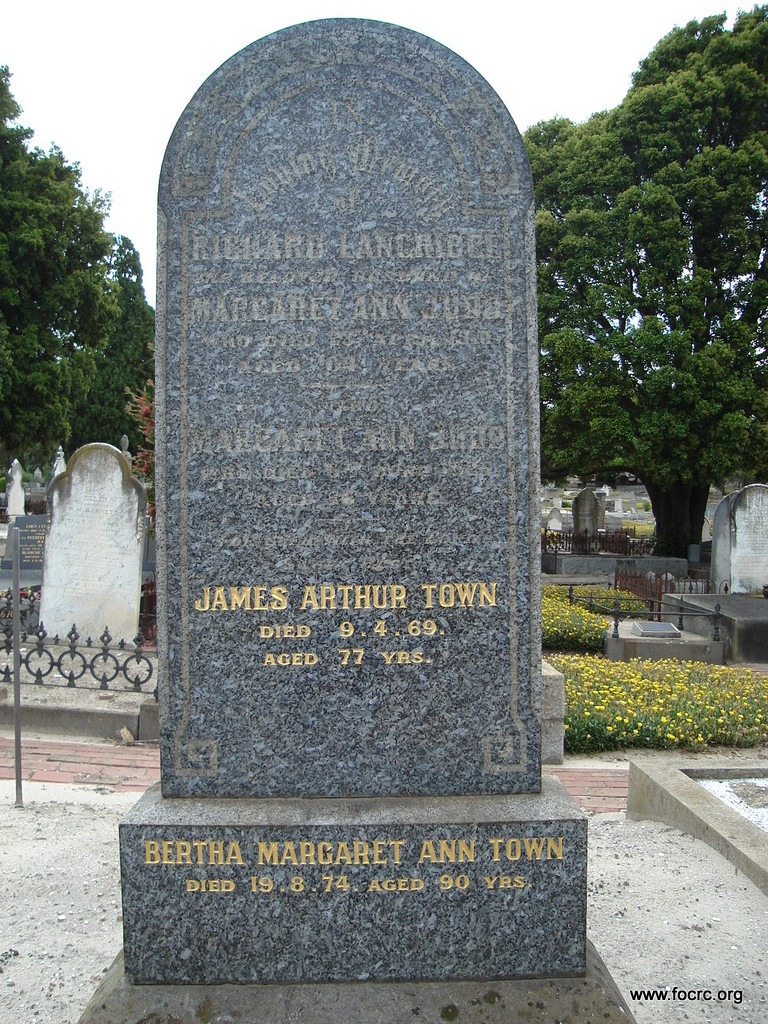
My great grandfather was James Judd 1847-1929. I have some information on his descendants, and on his younger David and his descendants if anyone is interested.
Minnie Octavia Judd was my great grandmother.
I have used the info from this site plus much more to do a family tree ( Public tree on Ancestry.com)
Rhonda Fergus (nee Ward)
Hi, I have a giant portrait (photo) of RL Judd who is my mothers great grandfather. Hit me up if you would like a copy.
I would love to see this picture of Richard, my ancestor
my maternal great, great grandfather was the said samuel judd dob 5th april, 1800
my great grandfather was the said james judd dob 25th january, 1847.
my grandfather was albert somerville judd dob 24th may, 1882.
my mother was marjorie annie walsh nee judd dob 27th october, 1918.
My grandmother Lily Amelia Judd 1895-1980 was James Judd’s youngest child from his 2nd marriage.She was my mother’s mother.
I think Harold Edgar Judd is my great grandfather, his daughter Beryl my grandmother married Robert Slocombe